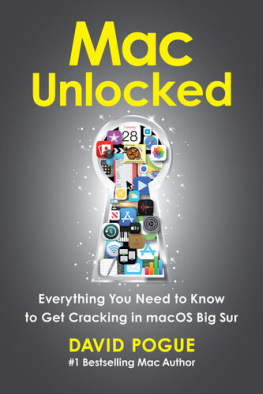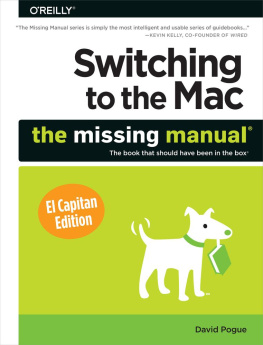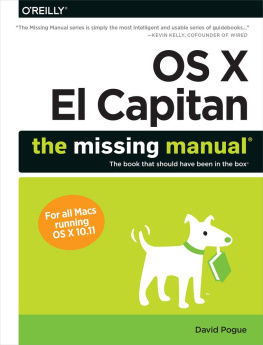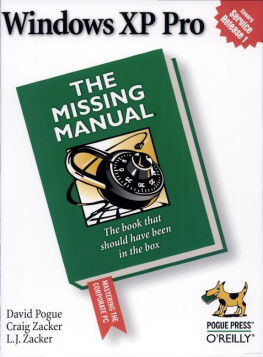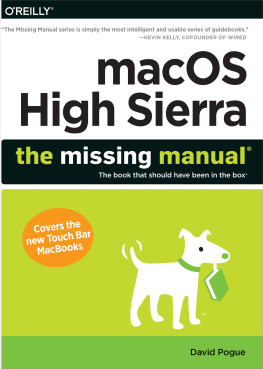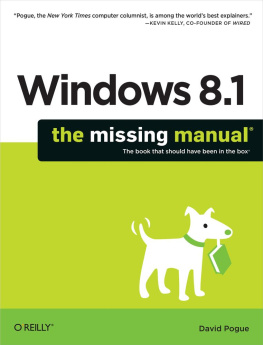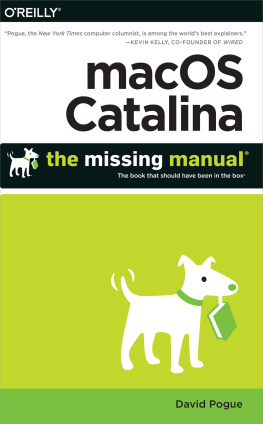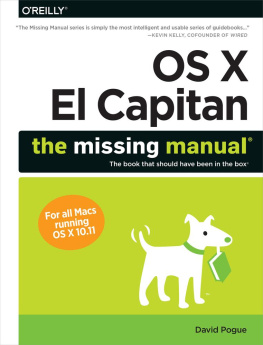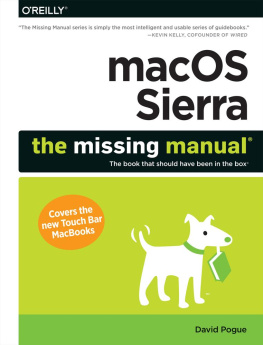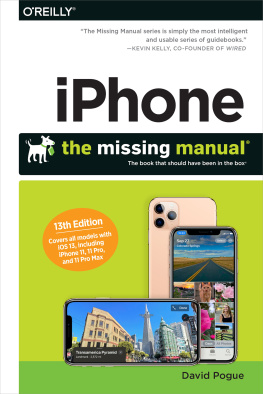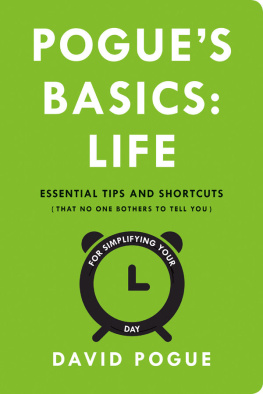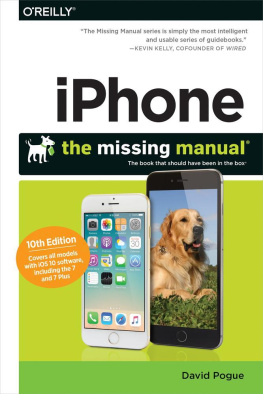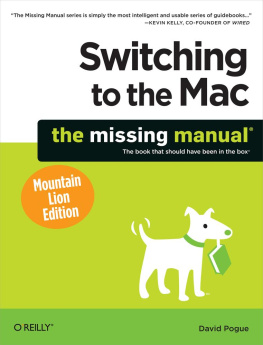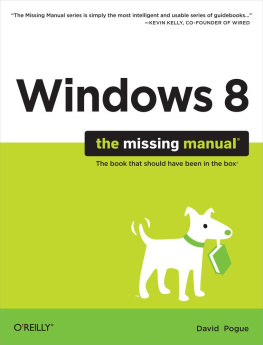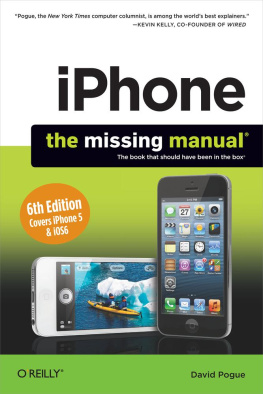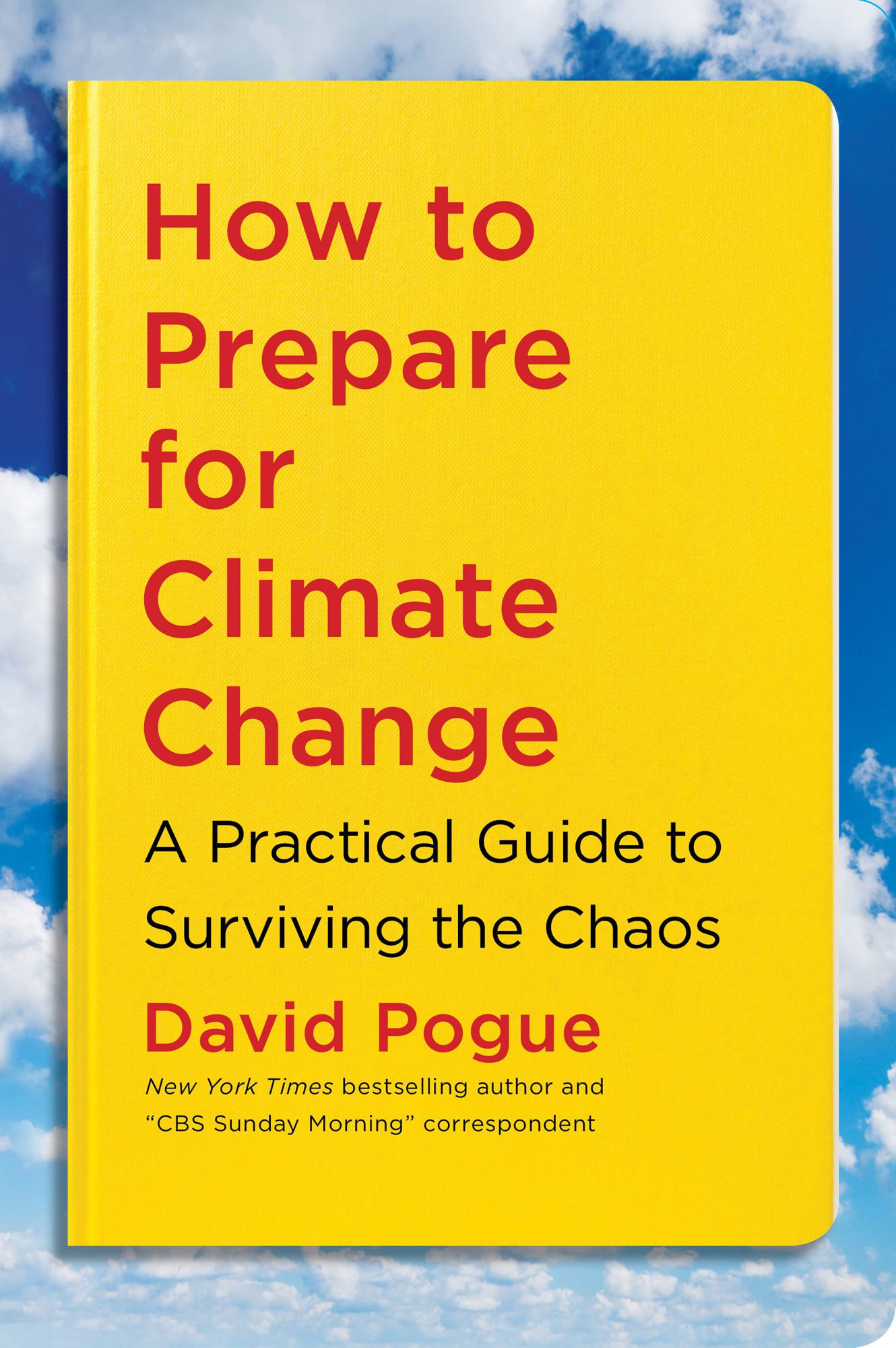Contents
Guide
ALSO BY DAVID POGUE
Mac Unlocked
iPhone Unlocked
macOS: The Missing Manual
Windows 10: The Missing Manual
iPhone: The Missing Manual
Pogues Basics: Tech
Pogues Basics: Money
Pogues Basics: Life
Abby Carnelias One and Only Magical Power
The World According to Twitter
Opera for Dummies
Classical Music for Dummies
Magic for Dummies

Simon & Schuster
1230 Avenue of the Americas
New York, NY 10020
www.SimonandSchuster.com
Copyright 2021 by David Pogue
For illustration credits, see as an extension of this copyright page.
All rights reserved, including the right to reproduce this book or portions thereof in any form whatsoever. For information, address Simon & Schuster Subsidiary Rights Department, 1230 Avenue of the Americas, New York, NY 10020.
First Simon & Schuster trade paperback edition January 2021
SIMON & SCHUSTER and colophon are registered trademarks of Simon & Schuster, Inc.
For information about special discounts for bulk purchases, please contact Simon & Schuster Special Sales at 1-866-506-1949 or .
The Simon & Schuster Speakers Bureau can bring authors to your live event. For more information or to book an event, contact the Simon & Schuster Speakers Bureau at 1-866-248-3049 or visit our website at www.simonspeakers.com.
Interior design by Paul Dippolito
Cover design by Jason Heuer
Cover art: Book by Gutsulyak/Shutterstock Images;
Sky by Nemezlya/Shutterstock Images
Library of Congress Cataloging-in-Publication Data
Names: Pogue, David, author.
Title: How to prepare for climate change : a practical guide to surviving the chaos / David Pogue.
Description: First Simon & Schuster trade paperback edition. | New York : Simon & Schuster, 2020. | Includes bibliographical references and index. | Summary: A practical and comprehensive guide to surviving the greatest disaster of our time, from New York Times bestselling self-help author and beloved CBS Sunday Morning science and technology correspondent David PogueProvided by publisher
Identifiers: LCCN 2020020295 | ISBN 9781982134518 (paperback) | ISBN
9781982134587 (ebook)
Subjects: LCSH: Climatic changes. | Preparedness. | Emergency management. | Environmental disasters.
Classification: LCC QC903 .P64 2020 | DDC 363.738/747dc23
LC record available at https://lccn.loc.gov/2020020295
ISBN 978-1-9821-3451-8
ISBN 978-1-9821-3458-7 (ebook)
For Kell, Tia, Jeffrey, and Nickimy reasons to prepare
Introduction
M aybe youre liberal, maybe youre conservative. Maybe you think the climate crisis is man-made, maybe you think its just natural cycles. Maybe you think the whole thing is a Chinese hoax.
Guess what? It doesnt matter. The world is getting hotter, natural systems are going haywire, and you should begin to prepare.
Even if we stopped burning fossil fuels and chopping down forests tomorrow, we wouldnt stop climate change. We wouldnt stop land ice from melting, millions of people from enduring forced migration, thousands of animal species from going extinct, and thousands of people from dying every year from insane-weather events that are hitting steadily more frequently.
Thats because 93% of our new, improved heat has gone into the oceans, which take decades or centuries to heat up or cool down. As a result, the planets climate would take a lifetime to reset.
In short, the time for bickering about who or what is at fault is long gone.
The Intergovernmental Panel on Climate Change (IPCC) is the worlds most authoritative climate assembly: 1,300 scientists from all over the world. Every few years, they release a sort of How Screwed Are We? report card. In the latest report, the IPCC projects that the earths average temperature will rise between 2.5F and 10F in the next 100 years.
And thats a very conservative estimate. After all, it had to earn a consensus of government bureaucrats.
Its time to accept the new realitiesof extreme weather, sure, but also what that weather will mean for our everyday lives: a lot of conflict, cost, and chaos.
In 2007, the New York Times interviewed John Holdren, Barack Obamas senior science advisor. What he said has become famous in climate circles:
We basically have three choices: mitigation, adaptation, and suffering. Were going to do some of each. The question is what the mix is going to be.
Once you start reading about climate science, you encounter these terms a lot.
- Mitigation means trying to stop climate change: Replace fossil fuels with clean power. Eat less beef. Fly less. Grow trees instead of clear-cutting them. Adopt smarter farming and industrial techniques. Drive less. Have fewer children.
- Adaptation means coping with climate change: Build seawalls. Raise houses. Move farmland to cooler regions. Plant heat-tolerant trees. Buy out homeowners in flood-prone areas.
- Suffering. Well, youll be reading plenty about that.
Heres an analogy: Suppose youre all dressed up, and suddenly it starts raining hard. Mitigation would be aiming a blow dryer at the sky in hopes of drying up the rain. Adaptation would be opening an umbrella.
Theres no longer any intra-expert arguing over mitigation versus adaptation; its too late for that. We have to do both, as hard and as fast as possible.
Reams have been written about what you, as an individual, can do to pursue mitigationand you should. You should mitigate the hell out of your home, your family, your town, your employer, your voting record.
But so far, the only people doing much adaptation are governments, corporations, and institutions.
Where does that leave you, the individual? You cant build a seawall this weekend. You cant persuade farmers to move north. You cant develop drought-proof seeds.
Thats where this book comes in. Its a practical guide to adaptation steps that you can take, as one personfor your own benefit, your familys, and your communitys. Its about where to live, how to invest, what to eat, how to build, what insurance you need, how to talk to your kids. Its also about how to prepare for the extremes that are coming soon to weather near you: floods, fires, heat waves, droughts, superstorms, water shortages, food shortages, power failures, and social disruption.
COVID-19 and Climate Change
The COVID-19 virus has killed people by the hundreds of thousands. It has flattened the economy. It has brought our way of life to a screaming halt.
The pandemic and the climatetwo crises that might seem unrelated at firstactually have quite a bit in common. Both are unanticipated consequences of human encroachment into undisturbed natural areas (the 2020 coronavirus apparently crossed to humans from bats). The air pollution thats changing the climate also drives up the COVID-19 death rate. And both the virus and the climate crisis cause disproportionate suffering among people of color and low incomes.
The pandemic did, however, introduce one tiny scrap of good news: a global pause in planet-heating human activity.
At the depths of the pandemic, air travel was down 95%. Road traffic in locked-down countries dropped 75%. Factories shut down or scaled back operations. Millions of office buildings, restaurants, stores, and malls sat empty, their lights and air-conditioning shut off.

